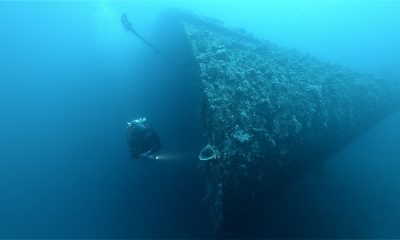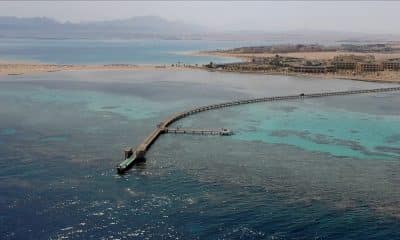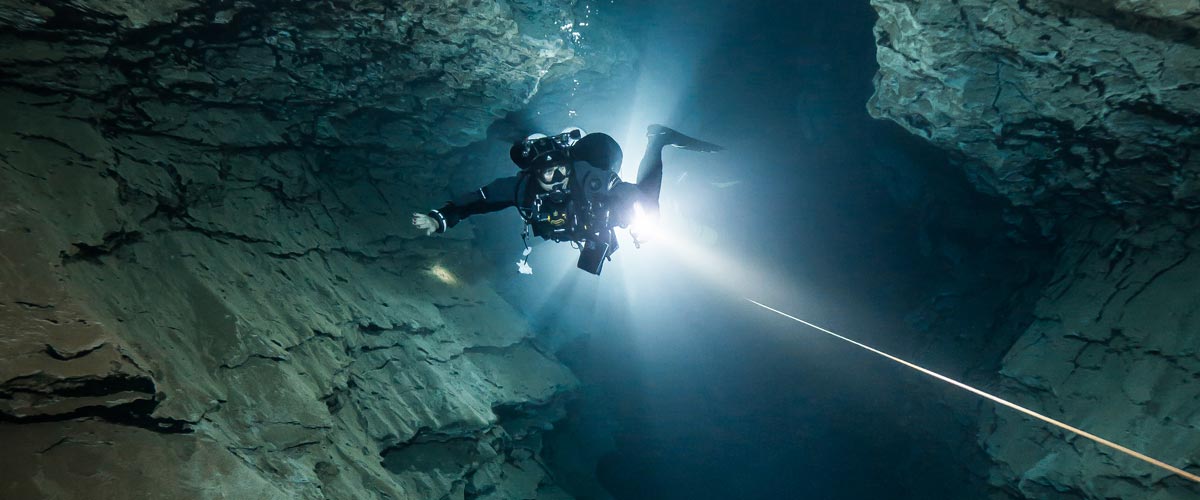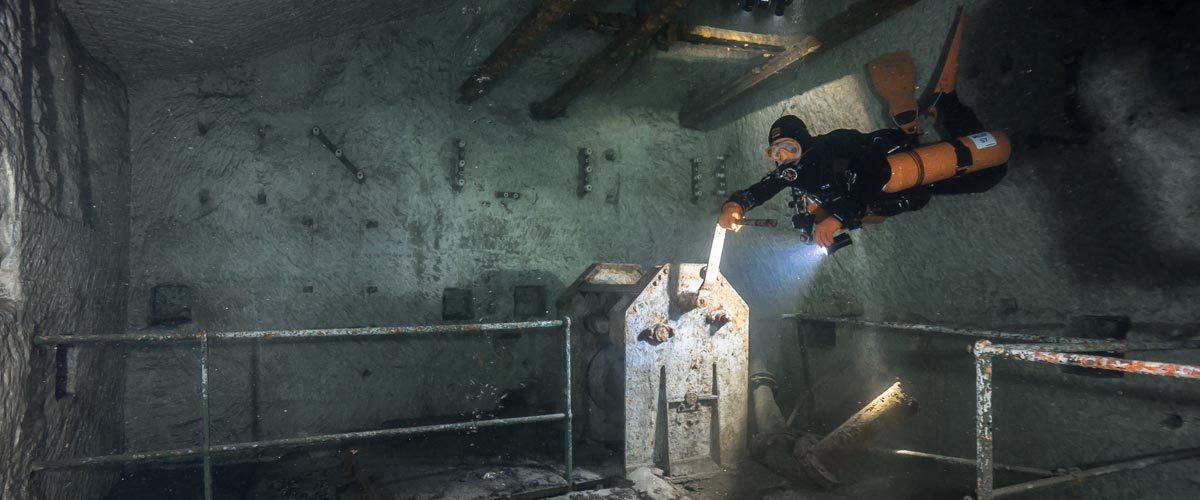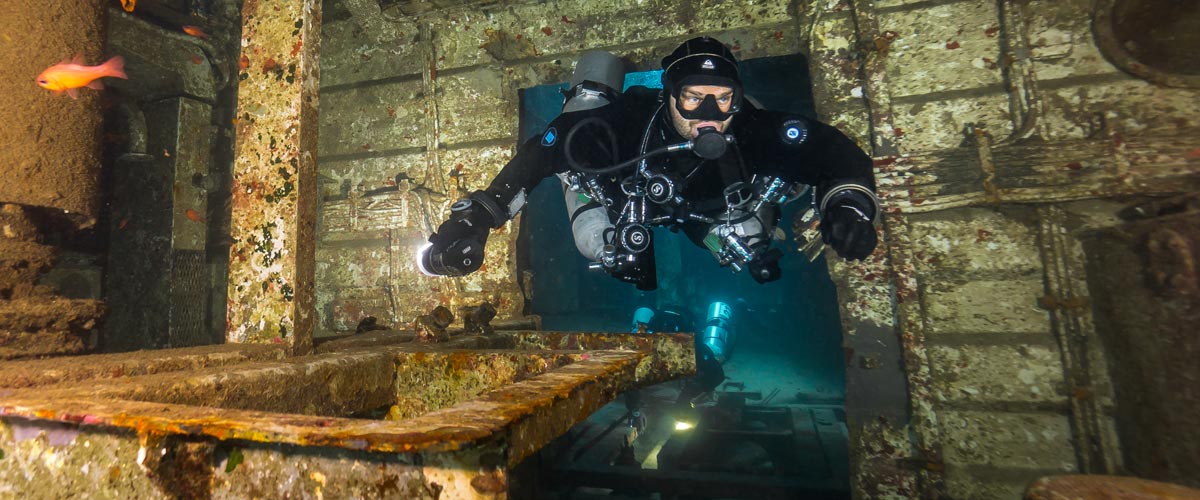Dive Training Blogs
Don’t Drink and Dive!
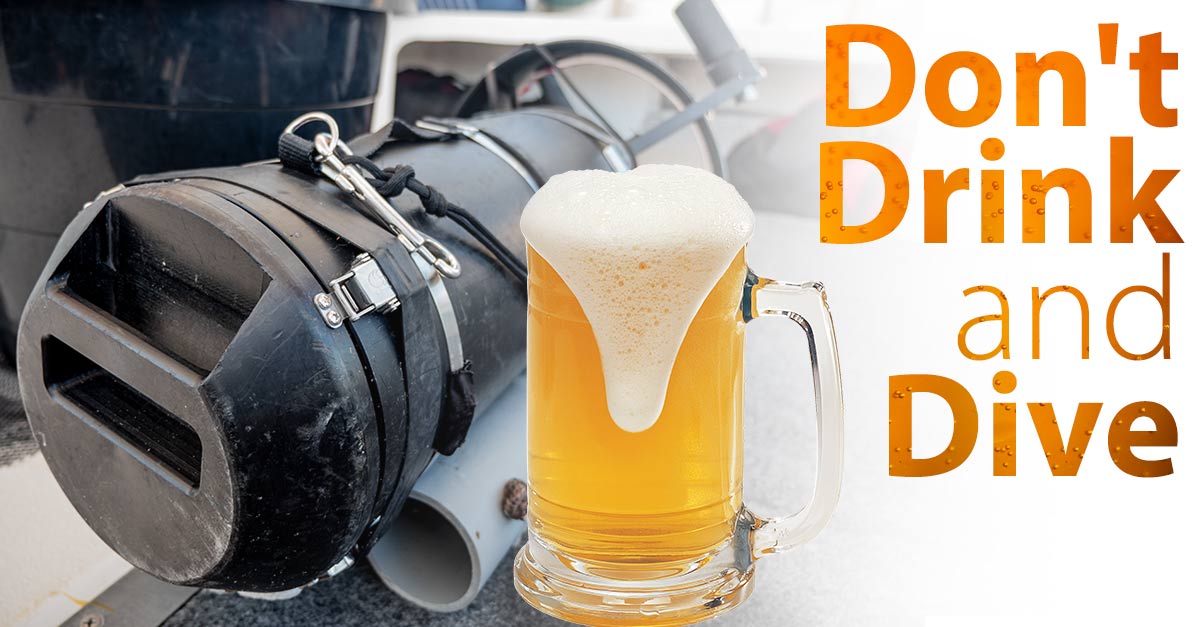
By Stephen Phillips
It’s that time of the year when divers plan holidays or expeditions to many diving destinations all over the world. For many, this is a once-in-a-lifetime dream. It shouldn’t be a nightmare.
The whole experience revolves around diving and of course the social interaction with like-minded people, but we need to be responsible. As the old saying goes, “First drink/last dive.” It seems harsh, but would you drink and drive or use complicated machinery in your job under the influence of alcohol? Of course not. Diving is no different. There are a number of effects that can lead to bad consequences, both underwater and when we surface.
Really diving and consuming alcohol before after and during surface intervals do not go together. Alcohol affects the central nervous system. It impairs judgment and coordination. This reduces the ability to react and coordinate many skills and tasks we try to perform during our excursions underwater.
Diving whether Recreational or Tech we are exerting ourselves physically and mentally.
If an emergency happens, we need to act quickly. Studies looking at the effects of alcohol and performance have shown that a high percentage of all drowning incidents in adult males are associated with alcohol (Diving and Subaquatic Medicine, Edmunds C, et al.,2002)
Alcohol takes time for effects to subside and the body to metabolize alcohol and its effects to subside. Performing skills and thinking processes can be impaired by as little as a blood alcohol (BAC) of 0.04%. Put in laymen’s terms, this would be the BAC of an average 82 kg/180 lb adult male who drinks two, 12-ounce beers in a short period of time on an empty stomach. This was highlighted in a study by M.W.Perrine and colleagues. The study also found that, at lower levels, situational awareness and problem solving were impaired. Remember that, in a diving environment were awareness and problem solving are critical if an emergency occurs
In many of the courses we teach, dehydration, when severe, is most likely a major factor in decompression sickness (DCS). This may be caused by recent alcohol intake as well as seasickness, excessive sweating, the fact we are breathing dry air and diuresis from immersion. It has not been conclusively answered whether alcohol causes diver’s susceptibility to DCS due to only a few studies out there but that’s for another day and personally, I do not want to be that statistic.
Tech diving, in particular, is a section of diving where meticulous planning and skills are required given the depths sometimes attained. So it is in our interest and safety that we think carefully about alcohol consumption before and after these formal activities. Trimix lessens the effects of nitrogen narcosis on some deeper dives. However, this benefit can be offset by a high BAC. High blood alcohol levels may enhance the effects of nitrogen narcosis along with dehydration. This could lead to accidents because of poor problem-solving.
The bottom line is that diving and drinking alcohol do not go together.
The central nervous system is affected in such a way that judgment is impaired. Plus in fact, reaction times and coordination are reduced. This is not the best recipe for sport or tech diving. How many risk assessments do we see with alcohol consumption highlighted?
As divers we need to take a responsible approach to alcohol consumption. Not only before diving but afterward. Following a few simple rules will leave us with good memories, not ones we regret.
These rules are:
- Get a good night’s sleep. Anything up to eight hours or more.
- Limit alcohol consumption the night before to two or three, with a non-alcoholic drink between them.
- Drink plenty of water or sports drinks the morning of your dive. Being well-hydrated helps.
- Don’t drink on an empty stomach. A good meal helps slow the flow of alcohol into your system.
- Don’t forget to have a healthy breakfast on the morning of your dive.
I have covered only the tip of the iceberg here. There is a lot more information out there. They say knowledge helps us make the right decisions, so let’s be safe.
To find out more about International Training, visit www.tdisdi.com.

Blogs
Intro to Tech: What is it about?
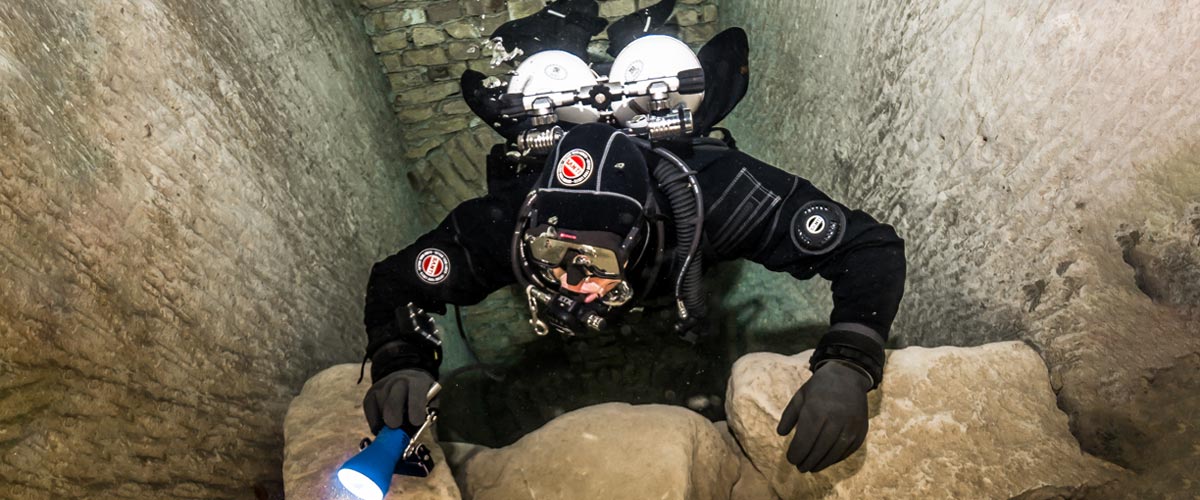
Article by José Pablo Mir
Pictures by Cezary Abramowski
The world of technical diving is exciting. It opens the door to new sites, depths, and bottom times. More importantly, it opens our minds to a new way of planning, facing, and experiencing dives, even those not purely technical.
Becoming a technical diver is a process, and like in other aspects of life, we should find the proper entry point that suits us best based on our knowledge and experience. The Introduction to Technical Diving course from TDI -the world’s largest and most recognized technical diving teaching organization- is the best option for divers who have yet to gain experience in the fundamental aspects of this new practice. The course’s content and its embrace of new techniques and technologies make it possible to acquire a solid foundation to learn and gain experience in this practice properly.
Becoming a technical diver is not something that happens overnight, whether deciding to become one or receiving a certification card stating we are now technical divers. It is a slow process extending farther away than any introductory course. It requires effort and dedication. But it will bring us satisfaction from day one -or two.
It is a matter of mentality
First, we must understand and accept that technical diving, involving greater depths, longer bottom times, exotic gases, virtual or real ceilings, and more, comes with higher levels of risk than the sport diving we have been practicing until now.
Although this discussion usually starts with a warning about risks, as I’ve done in the previous sentence, our practice is not a game of chance.
Technical diving is a rational activity that requires maturity and good judgment, and we will put everything into ensuring that each dive is a successful one -meaning we return from it safe and sound. With this understanding, we will strive to establish a mental attitude more aligned with our practice and its realities.
This new “technical diver” mindset we will develop will lead us to be more cautious in our executions, more analytical in our plans, more rational in our strategies, and more detailed in our procedures.
Experience will keep teaching us to know ourselves better, to keep our anxiety and other emotions under control, and to manage our impulses. Over time, our senses will sharpen, and we will be more attentive to the particulars of the situation we find ourselves in.
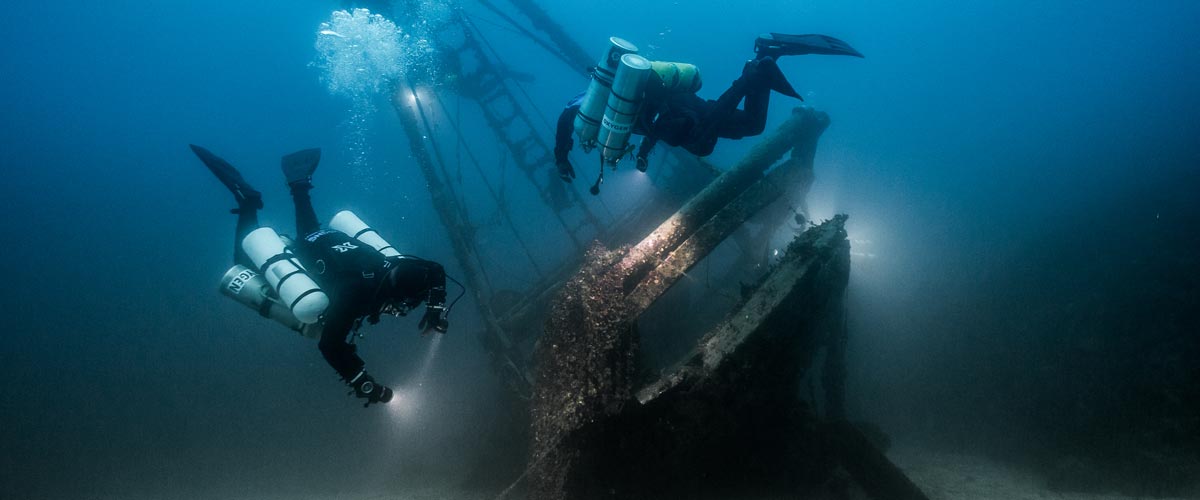
Strategies and procedures
Our strategies, those broad guiding lines tracing the path to follow, from how to approach planning to where, with what, and how we are willing to get there, will be more specific and more practical. Not because they magically become so, but because we will consciously and deliberately frame them that way.
We will establish clear, concise, and realistic procedures. Not only for the undesirable situations that may present themselves but also for those that are part of our dive objectives.
Even though, as technical divers, we often use equipment different from what we were previously accustomed to, it is essential to note that the gear does not make the diver. In a way, we could consider such equipment as the necessary tools to implement what our goal seeks to achieve, according to our strategies and procedures.
Technique plays an important role
We must put our greatest effort into learning and perfecting the different techniques we will be acquiring. Buoyancy, trim, propulsion, cylinder handling, deploying DSMBs and lift bags, valve drills, and more are essential skills we must begin to master to progress in our art. What we cannot do, when we need to do it, can harm us.
Our techniques must be effective and achieve the purpose for which they were devised. But they must also be efficient and require the least resources possible, including the time they take and the effort they demand. Effectiveness and efficiency will prevail over beauty and other considerations that may come to mind, although none of them should be mutually exclusive. A technique executed efficiently and effectively tends to have an inherent beauty.
Refining techniques is a lifelong mission. Some of them will be easy to master from the go; others, on the other hand, will be our life mission and will require many repetitions just to resemble the idea we have in mind of how they should be executed.
We must consider the environment
Our learning, the needs and musts of the practice we engage in, the experience we gradually gain, our strategies and procedures, and even our equipment and tools change with the environment.
Diving in the ocean, everything about us must be suitable for ocean dives. Conditions there rarely emulate those found in a pool, lake, or river. Variable winds and currents, greater depths, visibility conditions, other divers with uncertain skills around us, marine life, maritime traffic, distance from the coast, and many other factors add complexity and uncertainty.
It is never necessary to master the pool on the first day, but planning and aspiring to gradually cope with the ocean’s conditions is essential.
The cost of good training
We are aware that our resources are often scarce in relation to the possibilities of use we could give them if they were not. To a greater or lesser extent, we are part of the economic reality in which we are embedded.
Fortunately, the cost of good technical diver training is not an entry barrier. Comparing training and equipment costs, we see that the former are generally lower. Yes, lower cost for personalized service, essential to our future
performance and safety, than for a series of mass-produced products that are mere, albeit necessary, tools for an end.
The value of good training
The value of the training we received encompasses a range of characteristics, from emotional and methodological to technical and technological. TDI and its Introduction to Technical Diving course offer a deep and modern approach, with a teaching strategy that aims to create thinking divers, not merely obedient ones.
As technical divers, our knowledge is our primary tool. In this type of activity, what we don’t know can harm us.
Is this course optional?
Unfortunately, the fact that this Introduction to Technical Diving course is not a prerequisite for any subsequent training is an invitation to consider it optional. And we all know what usually happens to “optional” under budget constraints.
However, this course should be seen as optional only by those divers who are somehow familiar with the use of technical equipment, who have a mindset more in line with the requirements of this type of diving, who plan and execute the dives the proper “technical” way, who know their gas consumption rate, who are not intimidated by non-decompression tables, who feel comfortable using their dive computers, and know the techniques and have at least an acceptable level of buoyancy, positioning, and propulsion. Those can go straight to a more advanced training course, such as TDI’s Advanced Nitrox.
We must ask ourselves whether or not we are in that group.
Remember our goal: to have fun
Recreational diving is our passion. Jumping into the water carrying heavy equipment and having properly dotted our I’s and crossed our T’s have only one ultimate goal: fun. This is the activity we have chosen as a hobby. We must enjoy it; it must give us pleasure and make us vibrate.
Having a good time is not optional!
Blogs
Four opportunities to go pro in 2024 with Dive Friends Bonaire
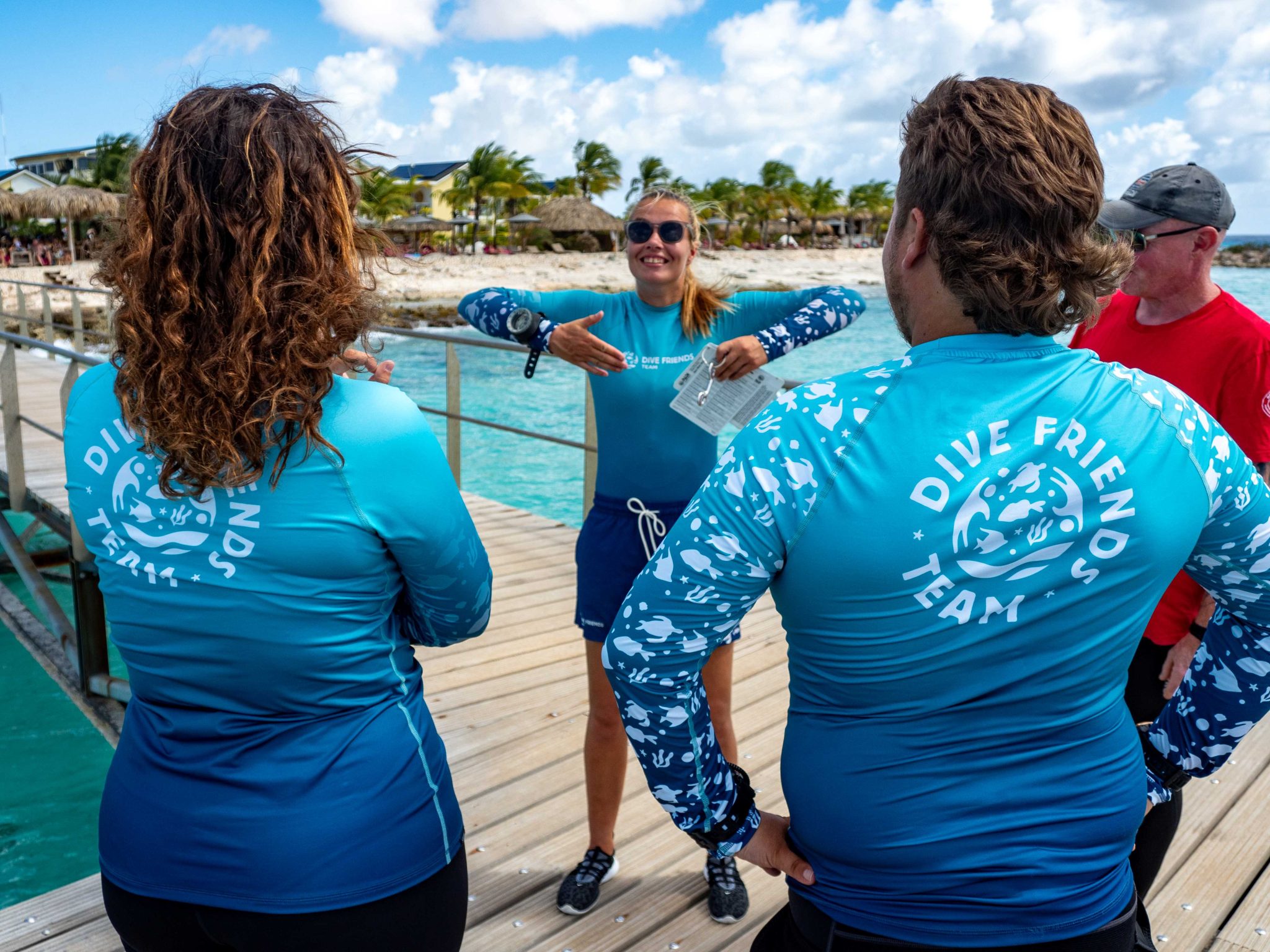
Dive Friends teaches the Instructor Development Course (IDC) several times a year to students who are eager to share their passion for diving with the world.
Dive Friends is known for the personal approach throughout the course. Their in-house course director will lead the students through every essential step, mentoring them to achieve their fullest potential as a dive instructor.
Applications for the following IDC start dates are now open:
- 12 April
- 5 July,
- 20 September
- 29 November
Partnership with Casita Palma
If the student opts for the IDC-Deluxe or IDC-Supreme package, their accommodation will be arranged for them at Casita Palma. This small and quiet resort is within walking distance from Dive Friends Bonaire’s main dive shop location and has everything you need to relax after an intense day of IDC training. Breakfast is included, so the student will always be fuelled and ready for their day.
Contact Dive Friends Bonaire’s Course Director Eddy for more information: coursedirector@divefriendsbonaire.com.
-

 News3 months ago
News3 months agoHone your underwater photography skills with Alphamarine Photography at Red Sea Diving Safari in March
-

 News2 months ago
News2 months agoCapturing Critters in Lembeh Underwater Photography Workshop 2024: Event Roundup
-

 Marine Life & Conservation Blogs2 months ago
Marine Life & Conservation Blogs2 months agoCreature Feature: Swell Sharks
-

 Blogs2 months ago
Blogs2 months agoMurex Resorts: Passport to Paradise!
-

 Blogs2 months ago
Blogs2 months agoDiver Discovering Whale Skeletons Beneath Ice Judged World’s Best Underwater Photograph
-

 Gear News3 months ago
Gear News3 months agoBare X-Mission Drysuit: Ideal for Both Technical and Recreational Divers
-

 Gear Reviews2 months ago
Gear Reviews2 months agoGear Review: Oceanic+ Dive Housing for iPhone
-

 Marine Life & Conservation2 months ago
Marine Life & Conservation2 months agoSave the Manatee Club launches brand new webcams at Silver Springs State Park, Florida











